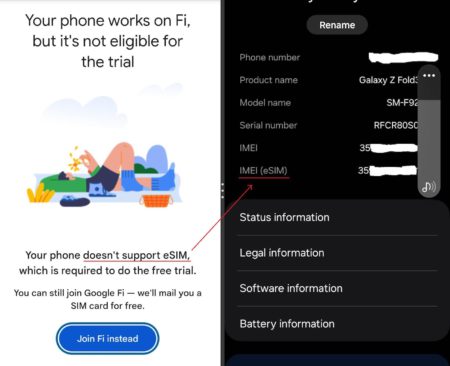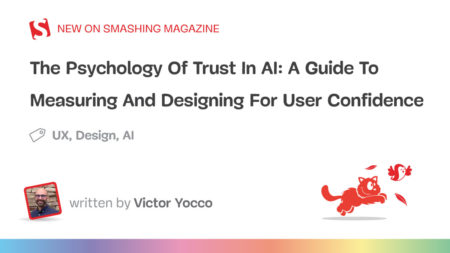Gemini 2.5 Pro and Flash are generally available and Gemini 2.5 Flash-Lite in preview
According to Google, no changes have been made to Pro and Flash since the last preview, except for the pricing for Flash is different. When these models were first announced, there was separate thinking and non-thinking pricing, but Google said that separation led to confusion among developers.
The new pricing for 2.5 Flash is the same for both thinking and non-thinking modes. The prices are now $0.30/1 million input tokens for text, image, and video, $1.00/1 million input tokens for audio, and $2.50/1 million output tokens for all. This represents an increase in input cost and a decrease in output cost.
Google also introduced a preview of Gemini 2.5 Flash-Lite, which has the lowest latency and cost among the 2.5 models. The company sees this as a cost-effective upgrade from 1.5 and 2.0 Flash, with better performance across most evaluations, lower time to first token, and higher tokens per second decode.
Gemini 2.5 Flash-Lite also allows users to control the thinking budget via an API parameter. Since the model is designed for cost and speed efficiency, thinking is turned off by default.
GitHub Copilot Spaces arrive
GitHub Copilot Spaces allow developers to bundle the context Copilot should read into a reusable space, which can include things like code, docs, transcripts, or sample queries.
Once the space is created, every chat, completion, or command Copilot works from will be grounded in that knowledge, enabling it to produce “answers that feel like they came from your organization’s resident expert instead of a generic model,” GitHub explained.
Copilot Spaces will be free during its public preview and won’t count against Copilot seat entitlements when the base model is used.
OpenAI improves prompting in API
The company has now made it easier to reuse, share, save, and manage prompts in the API by making prompts an API primitive.
Prompts can be reused across the Playground, API, Evals, and Stored Completions. The Prompt object can also be referenced in the Responses API and OpenAI’s SDKs.
Additionally, the Playground now has a button that will optimize the prompt for use in the API.
“By unifying prompts across our surfaces, we hope these changes will help you refine and reuse prompts better—and more promptly,” OpenAI wrote in a post.
Syncfusion releases Code Studio
Code Studio is an AI-powered code editor that differs from other options available by having the LLM utilize Syncfusion’s library of over 1,900 pre-tested UI components rather than generating code from scratch.
It offers four different assist modes: Autocomplete, Chat, Edit, and Agent. It works with models from OpenAI, Anthropic, Google, Mistral, and Cohere, as well as self-hosted models. It also comes with governance capabilities like role-base access, audit logging, and an admin console that provides usage insights.
“Code Studio began as an in-house tool and today writes up to a third of our code,” said Daniel Jebaraj, CEO of Syncfusion. “We created a secure, model-agnostic assistant so enterprises can plug it into their stack, tap our proven UI components, and ship cleaner features in less time.”
AI Alliance splits into two new non-profits
The AI Alliance is a collaborative effort among over 180 organizations across research, academic, and industry, including Carnegie Mellon University, Hugging Face, IBM, and Meta. It has now been incorporated into a 501(c)(3) research and education lab and a 501(c)(6) AI technology and advocacy organization.
The research and education lab will focus on “managing and supporting scientific and open-source projects that enable open community experimentation and learning, leading to better, more capable, and accessible open-source and open data foundations for AI.”
The technology and advocacy organization will focus on “global engagement on open-source AI advocacy and policy, driving technology development, industry standards and best practices.”
Digital.ai introduces Quick Protect Agent
Quick Protect Agent is a mobile application security agent that follows the recommendations of OWASP MASVS, an industry standard for mobile app security. Examples of OWASP MASVS protections include obfuscation, anti-tampering, and anti-analysis.
“With Quick Protect Agent, we are expanding application protection to a broader audience, enabling organizations both large and small to add powerful protections in just a few clicks,” said Derek Holt, CEO of Digital.ai. “In today’s AI world, all apps are at risk, and by democratizing our app hardening capabilities, we are enabling the protection of more applications across a broader set of industries. With eighty-three percent of applications under constant attack – the continued innovation within our core offerings, including the launch of our new Quick Protect Agent, could not be coming at a more crucial time.”
IBM launches new integration to help unify AI security and governance
It is integrating its watsonx.governance and Guardium AI security solutions so that companies can manage both from a single tool. The integrated solution will be able to validate against 12 different compliance frameworks, including the EU AI Act and ISO 42001.
Guardium AI Security is being updated to be able to detect new AI use cases in cloud environments, code repositories, and embedded systems. Then, it can automatically trigger the appropriate governance workflows from watsonx.governance.
“AI agents are set to revolutionize enterprise productivity, but the very benefits of AI agents can also present a challenge,” said Ritika Gunnar, general manager of data and AI at IBM. “When these autonomous systems aren’t properly governed or secured, they can carry steep consequences.”
Secure Code Warrior introduces AI Security Rules
This new ruleset will provide developers with guidance for using AI coding assistants securely. It enables them to establish guardrails that discourage the AI from risky patterns, such as unsafe eval usage, insecure authentication flows, or failure to use parameterized queries.
They can be adapted to use with a variety of coding assistants, including GitHub Copilot, Cline, Roo, Cursor, Aider, and Windsurf.
The rules can be used as-is or adapted to a company’s tech stack or workflow so that AI-generated output better aligns across projects and contributors.
“These guardrails add a meaningful layer of defense, especially when developers are moving fast, multitasking, or find themselves trusting AI tools a little too much,” said Pieter Danhieux, co-founder and CEO of Secure Code Warrior. “We’ve kept our rules clear, concise and strictly focused on security practices that work across a wide range of environments, intentionally avoiding language or framework-specific guidance. Our vision is a future where security is seamlessly integrated into the developer workflow, regardless of how code is written. This is just the beginning.”
SingleStore adds new capabilities for deploying AI
The company has improved the overall data integration experience by allowing customers to use SingleStore Flow within Helios to move data from Snowflake, Postgres, SQL Server, Oracle, and MySQL to SingleStore.
It also improved the integration with Apache Iceberg by adding a speed layer on top of Iceberg to improve data exchange speeds.
Other new features include the ability for Aura Container Service to host Cloud Functions and Inference APIs, integration with GitHub, Notebooks scheduling and versioning, an updated billing forecasting UI, and easier pipeline monitoring and sequences.
The post This week in AI dev tools: Gemini 2.5 Pro and Flash GA, GitHub Copilot Spaces, and more (June 20, 2025) appeared first on SD Times.
Source: Read MoreÂ

